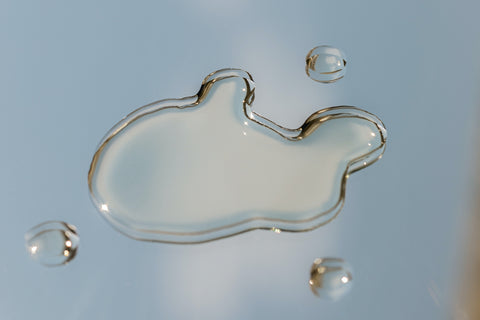
A little history
Oil pulling, an ancient Ayurvedic practice, has gained popularity in recent years for its potential health benefits. Ayurveda, a holistic system of medicine that originated in India over 3,000 years ago, promotes natural remedies and therapies to maintain overall well-being. Oil pulling is one such practice that involves swishing oil in the mouth for a specific duration. While Ayurveda has long extolled its virtues, modern scientific research is increasingly uncovering the benefits of this age-old practice. In this article, we will explore the benefits of oil pulling in Ayurveda, supported by scientific literature and studies.
What is Oil Pulling?
Oil pulling, known as "gandusha" or "kavala graha" in Ayurveda, is a simple yet powerful practice. It involves taking a tablespoon of edible oil (typically sesame, coconut, nutmeg, or clove oil) and swishing it around in the mouth for 2-5 minutes. This daily routine is should be done in the morning on an empty stomach. After swishing, the oil is spat out, and the mouth is rinsed with warm water.
Ayurvedic Beliefs about Oil Pulling
Ayurvedic texts describe oil pulling as a method to promote oral hygiene, detoxify the body, and maintain overall health. According to Ayurveda, the tongue is connected to various organs in the body, and the act of oil pulling is believed to stimulate these connections. As a result, oil pulling is thought to support the elimination of toxins and improve overall health.
Scientific Evidence Supporting Oil Pulling
While Ayurveda has promoted oil pulling for centuries, modern science has provided valuable insights into its potential health benefits through various studies and clinical trials:
1. Improved Oral Health: Numerous studies have shown that oil pulling can reduce the presence of harmful bacteria in the mouth, which is associated with improved oral health. A 2022 study published in the Journal of Clinical and Diagnostic Research found that oil pulling significantly reduced the levels of Streptococcus Mutans, a bacteria responsible for tooth decay.
2. Reduction of Plaque and Gingivitis: A study published in the Journal of Indian Society of Pedodontics and Preventive Dentistry in 2008 found that oil pulling with sesame oil led to a significant reduction in plaque and gingivitis, demonstrating its potential as a natural adjunct to conventional oral care.
3. Antimicrobial Properties: Various oils used in oil pulling, such as coconut and sesame oil, possess antimicrobial properties. This makes them effective at combating harmful microorganisms in the mouth. Research indicates that this antimicrobial activity contributes to overall oral health.
4. Possible Detoxification: Recent studies suggest that oil pulling helps eliminate toxins from the body. A 2017 study published in the Journal of Ayurveda and Integrative Medicine found that oil pulling could be an effective method for reducing the overall microbial load in the body.
5. Relief from Halitosis: Oil pulling is known to help improve bad breath, or halitosis, by reducing the bacterial load in the mouth. This can lead to fresher breath and increased self-confidence.
The practice of oil pulling in Ayurveda, which has been trusted for centuries, is now supported by an increasing body of scientific evidence. It offers numerous benefits, particularly in promoting oral health, reducing harmful bacteria, and aiding in lymphatic drainage. Incorporating oil pulling into your daily routine may provide a natural and effective way to maintain a healthy mouth and possibly enhance your overall health. However, it's important to note that while scientific research supports the potential benefits of oil pulling, it should not replace traditional oral hygiene practices. Oil pulling is a valuable complementary therapy, and individuals with specific oral health concerns should consult with a healthcare professional or dentist for personalized advice. As with any natural remedy, it's essential to listen to your body and find the best approach for your unique needs.


Leave a comment